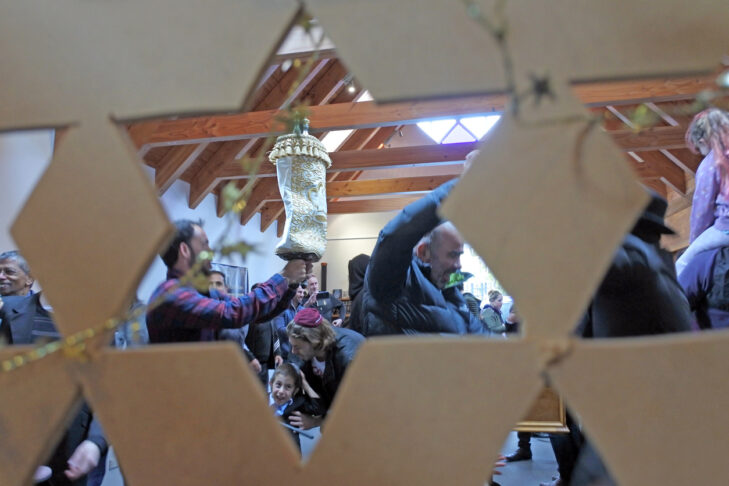COVID-19 had prevented me from going to my temple to worship for 19 months. For me, like many, the High Holy Days meant a return to my synagogue.
The first Zoom service in 2020 was a sad day for me. It had been my custom for several years to attend the Shabbat service in person weekly. During that first service, where the sanctuary was closed due to COVID, I just wanted to be in the sanctuary, even if I was the only one there. Later, I found out it was a good thing I didn’t try to go—the doors were locked.
My temple did everything they could to make Shabbat the best possible experience on Zoom. Participating remotely was better than having no service, but it wasn’t the same without the people. There was something special about having to stop doing what I was doing and physically travel to the temple—similar to what happens when someone asks you to turn off the TV or put down what you are reading and pay attention to them. In this case, the person trying to speak to me was The Lord, who deserved undivided attention.
In rabbinic Judaism, practiced since the destruction of the second Temple, the place and space of our prayers is not the focal point. It is the time and the intention. Some were better at being intentional about creating sacred space in their home for practicing Shabbat, in terms of making or buying challah, lighting their candles and drinking from their kiddush cup.
My experience reflected my laziness in not making the Shabbat service more than just another Zoom meeting. One positive was experiencing Shabbat on Zoom in “gallery view”; it provided the opportunity to see fellow worshipers as families and not just as congregants. It reminded me that we were going through the pandemic not alone, as a collection of individuals, but as we have so many times in history, as a people.
Going to the temple reminded me of the times in the scriptures of going to the altar, the tabernacle and the temple. All sacred places are special to God, as demonstrated by the detail God provides in how even a simple altar is to be created. In contrast, there is nothing sacred about any room in my house. Worshiping at home did remind me of times when Jews had to worship in secret because they lived in communist, Muslim or Christian areas hostile to Jews and Judaism.
Traveling to the temple reminded me of the Ascent or Pilgrim Psalms 120-134 and the travel to celebrate the feasts of Passover, Weeks and Booths. I thought of how dispiriting it must have been to the ancients to see the Northern and Southern Kingdoms fall and to witness the repeated destruction of the Temple. And to appreciate how invigorating it must have been to rebuild the Temple as a way to return to community worship.
Participating in my first community Passover seder at my synagogue was the moment I decided I wanted to be a part of the Jewish community. It was all there: worship, song, the Passover story, a story of justice, sharing a meal with families and friends led by an amazing team of clergy.
The return to the sanctuary for worship was something sacred. There is something special about being with my fellow congregants, to see that they were alright. There they were, participating in congregational singing and praying. To physically see those who were experiencing Shehecheyanu moments, offering mi shebeirach prayers for healing or standing with those experiencing the loss of a loved one during the Mourner’s Kaddish. To hear the teachings of Torah and sacred music all affirm that I am in the House of God, and that God is indeed in this place. I know it because I can feel it.
While the worship was amazing, there was something special about experiencing the warmth of the community, greeting people with a hug or handshake—or a COVID-19 appropriate socially-distant smile—seeing the friends that I have worshiped with for years and hearing them say, “It’s so nice to see you,” “Shabbat Shalom” or, more recently, “Shana tova.” Often, I was the last to leave the oneg, as I was trying to hold onto the feeling of community and didn’t want to let it go!
For me, the High Holy Days were extra special because I could return to worship God in such a unique and beautiful place with a special group of God’s people.
This post has been contributed by a third party. The opinions, facts and any media content are presented solely by the author, and JewishBoston assumes no responsibility for them. Want to add your voice to the conversation? Publish your own post here. MORE



